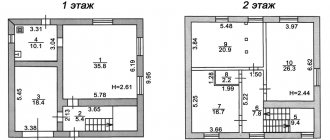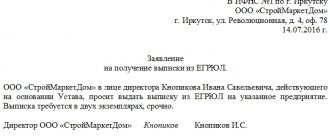Renting residential premises is the most popular type of relationship that arises between individuals. At first glance, it seems that if you make monthly payments on time, you can live in peace and not deny yourself anything. However, the owner has certain risks that he is exposed to when renting out real estate. Such risks include damage to its property or rendering the entire premises unusable.
What should an owner do to protect himself from possible fraud? To do this, many people use a security deposit, often confusing it with a mortgage on real estate. What is the difference between these concepts, how to properly protect yourself?
What is a security deposit when renting an apartment?
The concept of “security deposit” is in no way regulated by various regulations. It can be assumed that it follows from business customs that are accepted in a particular field of activity.
It represents a certain amount, a kind of security deposit, which the landlord asks from the tenant when concluding the contract.
This amount may be required in case of:
- Causing any significant damage to the rental premises.
- Damage to furniture.
- Destruction of household appliances.
Most often, the amount of such a payment is equal to one monthly payment for an apartment.
Differences between a bank deposit and a deposit
In the everyday practice of bank employees, the word deposit is usually used only for funds transferred by an individual. On the contrary, deposits are most often opened by legal entities of various organizational and legal forms. This difference is one of the most important.
It should be understood that the Federal Law “On Banks and Banking Activities” dated December 2, 1990 N 395-1, as amended on July 26, 2017, does not distinguish between the concepts of a bank deposit and a deposit program. At the same time, it is quite clearly divided by banking practice itself and business customs.
Deposits can only be made in an official bank that has a license from the Central Bank of the Russian Federation to carry out relevant financial activities. In addition to cash, the client can deposit other valuables and assets into deposit accounts. For example, company shares or jewelry. A bank deposit can be denominated exclusively in Russian or foreign currency. This is the second aspect in which the concepts under consideration differ.
The deposit cannot be permanent. Such a program will always have specific time limits fixed by agreement of the parties. Above we have already touched on demand deposits, which do not have such a framework. This is the third and final difference between the terms under consideration.
Difference between deposit and collateral
Quite often, landlords confuse these two concepts, but in reality it turns out that the essence of collateral and deposit are completely different.
- The deposit is a certain amount that the future tenant must pay as a reservation for the intention to rent a specific apartment. However, in reality this method is no longer popular, since a security deposit is now used instead.
- The deposit is usually paid directly when signing the completed lease agreement.
- The deposit is equal to the cost of living in this apartment for one month. It is for this reason that it can be used as payment for the last month of stay. You cannot do this with a security deposit.
- The deposit represents a certain amount of insurance that can be used in the event of damage to the property or the entire apartment as a whole.
- The deposit amount cannot be used to pay debts for utility services, as well as for the provision of a telephone line.
However, people still consider the concept of collateral and security deposit to be something identical.
Cases when a contract can be concluded without a security deposit
There are several ways to conclude an agreement without using a deposit or to receive the full amount after termination of the agreement:
- If there is a rental of real estate in which there are only bare walls, without any furniture and expensive repairs, then the landlord will not take a security deposit, since he has nothing to risk in such a situation.
- In other situations, it will not be at all profitable for the apartment owner to rent out his property to an outsider, so he is required to pay a certain amount specified by him.
- To prevent the landlord from pinning all the debts for previous tenants on the new tenant, before renting, you need to ask him to present a certificate from the local management company stating that there are no payment arrears in this apartment.
- In addition, you can take simple photographs of the furniture and the entire furnishings, in which you can see all the cracks that existed at the time of signing the contract. In such a situation, the owner will not be able to insist on compensation for such damage, since it was caused before occupancy.
- If it is not possible to pay the entire specified deposit amount at once, you can agree with your landlord to spread the insurance over several months. In such a situation, information about the deposit provided will be indicated in the contract only after the owner has received the entire required amount.
- If the tenant does not have any complaints when renting out the apartment, you can agree with him that this insurance will be used as payment for the last month of residence.
- It is worth remembering that information about the deposit must be indicated in the contract. Otherwise, if it is terminated, you may not receive a refund of the insurance.
Bank deposit concept
Unlike a deposit, a deposit provides the opportunity to transfer not only money, but also other valuable assets to a banking institution. We can primarily talk about securities and precious metals. Such assets are also transferred to the bank for safekeeping and income generation.
Less commonly, the term deposit has several other meanings in which it can be used:
- This is the name of a safe deposit box for storing valuables. The word depository can also be used in this sense;
- we can talk about a contribution to the judicial, administrative system or to the customs authority.
Deposit banking programs have a fairly large number of fans. Bank clients value such financial products for their convenience and reliability. They enter into contracts and deposit bonds, stocks, futures and precious metal bars.
Definition of the concept
A deposit is money transferred to the landlord for a certain period of time and subject to return to the tenant in case of proper execution of the contract.
The deposit amount consists of:
- monthly cost of renting an apartment;
- final calculation of utilities for one month.
In some cases, the amount may be increased by another rented month. The latter is not mandatory, but is possible by mutual agreement of the parties.
In other words, a deposit is an advance payment. The latter can appear as:
- insurance for entrusted real estate and material assets contained in it against damage;
- payment for the last month of residence in the rented premises.
Is the deposit amount refunded?
The law considers various security deposits as a tool to secure the obligations of one of the parties. And it can only be used in strictly specified situations.
A deposit for an apartment when renting an apartment cannot be both an advance payment for the last month of residence and security in case of property damage.
In practice, the vast majority of landlords consider all transferred money as their own. Apartment owners try not to return deposits under various pretexts.
What is it for?
It is worth noting that when concluding a contract the following is required:
- exact indication of the address of the real estate;
- full name, year of manufacture, actual condition of household appliances, including video and audio equipment;
- availability of intellectual property;
- indication of material assets;
- actual condition of the premises.
The above listed points must be accurately recorded in order to subsequently recalculate the deposit correctly if there are any changes.
This suggests the conclusion that the deposit is insurance for the owner of the premises for the safety of his entire property. If damage, breakage, or loss of any of the specified property occurs during the process, the responsibility falls entirely on the tenant.
It should be noted that if such a situation occurs, there are several options for solving it:
- the tenant completely covers the cost of the damaged property;
- the tenant purchases the same property at his own expense;
- the tenant and the landlord jointly resolve the current situation.
Taking into account the above, it must be said that payment of the insurance amount is necessary for:
- complete safety of all property;
- for peace of mind of the owner, for everything that belongs to him, for the duration of the lease contract.
What is the difference from collateral
Deposit and pledge are quite similar concepts. However, upon closer examination, it should be noted that the difference is large:
- The deposit is a payment to the owner of the premises for possible damage caused.
- A deposit is a kind of payment indicating that a person really intends to rent an apartment.
Naturally, if a deal is concluded, the amount of the deposit will be deducted from the rent. If the deposit has been paid and the lease agreement has not been concluded, then the funds remain with the lessor.
On November 1, Oleg, the landlord, met with Nikolai. After viewing the one-room apartment, Nikolai left a deposit of three thousand rubles. With this step, Nikolai confirmed his intention that he agreed to rent an apartment. The date for concluding the agreement was set for November 5th. When a certain date arrived, Nikolai did not show up for the deal. Accordingly, the collateral transferred by him remains with Oleg.
Deposits with interest capitalization
Many banks offer deposits with interest capitalization. These are deposits where, after the expiration of the main term, the accrued interest is added to the main deposit, and in the next deposit period interest is accrued on a different amount.
Reference!
For example, a client deposited 50 thousand rubles in the bank at 8% per annum. In a year, the amount in the account will be 50 thousand + 8% = 54,000 rubles. In another year, the amount will be equal to 54,000 + 8% = 58,320 rubles. This is the most profitable deposit option for accumulating funds and generating income.
There are also deposits with monthly capitalization. In such offers the income is more significant.
How to transfer a security deposit under a lease agreement to a party to the transaction
It is worth immediately noting that all monetary transactions occur only at the time of concluding the lease agreement.
This process occurs as follows:
- the landlord and tenant become familiar with the terms of the lease;
- the parties discuss the issues that have arisen;
- signing an agreement;
- determining the amount of money that the tenant must transfer to the landlord;
- direct transfer of funds;
- fixation of the transferred amount in the contract.
It must be said that at this moment the tenant must transfer the amount of two full months of rent.
What is a contribution
A deposit is a certain amount of money in any currency that is deposited by a bank client into his own account at a financial institution in order to save funds and increase them at the expense of the bank’s interest rate.
The determining parameter of the contribution is the degree of freedom:
- Time deposit.
- Deposit on demand.
In the first case, access to funds is minimal. Popular savings deposits fall into this category. Funds are sent to a bank account for a predetermined period. The account owner cannot make any transactions with his money. In some cases, the possibility of early termination of the contract is stipulated, but these are rather exceptions and usually lead to the loss of all accrued interest during the placement of the deposit with the bank.
Why do people choose this format of cooperation? Firstly, this is an important element of financial planning - you know exactly when and how much amount will be at your disposal. Secondly, the interest rate on time deposits is the highest, which makes them the best option for those who want to increase their assets.
The types of time deposits are:
- cumulative;
- calculated
In the first case, you cannot withdraw money early, but you can deposit additional funds into your balance. Settlement offers have a lower interest rate, and in some cases there is the ability to withdraw money, but with restrictions.
As for demand deposits, there are practically no restrictions on working with assets for the period they are in the bank. The owner can make any transactions with his money at any time.
You can do without the second amount
The insurance premium is mandatory and guarantees the lessor the safety of his property.
However, at the discretion of the owner, the insurance amount may not be paid for a number of reasons:
- the tenant is a trustee;
- There are no valuables in the rented premises.
It is worth noting that in some cases, insurance may be spread over several months. This happens only by agreement of the parties and is specified in the contract.
Is there any way to save money?
It is not profitable for the homeowner to do without such a payment, because he will constantly worry about the safety of his property. In most cases, a conscientious landlord will require the signing of an agreement regarding the payment of a security deposit. If this is not done, the tenant is unlikely to be able to move into such an apartment.
The insurance payment may not be made only in one case: if the tenant does not rent the entire apartment, but only a room, and the owner lives next door. This allows you to fully control the actions of the tenant, so there is no need to fill out an extra document. The owner can independently monitor the timely payment of housing and will notice in time if the property suddenly begins to wear out or deteriorate.
For the convenience of the tenant, the owner can split the payment amount into several months . This is stated at the stage of drawing up the lease agreement, where it is clearly stated in what amount, how and when the security deposit will be paid. As a rule, it is easier to pay this way, because not all people have large sums of money on hand.
Why some employers are reluctant to pay a security deposit
Renting apartments has been practiced for quite a long time. In this regard, there are both positive and negative experiences.
Andrey rented an apartment for ten months. When moving into the apartment, he paid a security deposit. Before leaving the rented premises, he warned the tenant thirty calendar days in advance. However, upon termination of the contract, Andrei did not receive the paid insurance back.
The tenant, in turn, explained this by failure to fulfill the contract in full. It is worth noting that in the future this situation can only be resolved in court. Based on the example presented, which in turn happens often, many are simply afraid to make a deposit.
It must be emphasized that during the validity of the contract, all funds transferred from one party to the other are recorded. This is done in order to avoid conflict situations later.
To summarize, we should list a few tips that will be useful in the future for both the tenant and the landlord:
- A realtor must be present at the conclusion of the contract. This person is an interested party and will complete the necessary documentation as required. In addition, if any questions arise, both parties will have the company’s telephone number where they can consult.
- The specific date of conclusion of the contract, as well as the dates of settlement and subsequent payments, must be recorded.
- Try to resolve conflict situations through negotiations and try to find a common language.
- Also, do not forget the issue of utility bills, since the amounts can be simply catastrophic.
- Check the condition of the apartment at least once a month. This is necessary for both the tenant and the landlord.
Didn't find the answer to your question? Find out how to solve exactly your problem - call right now:
What is a security deposit and why is it needed?
First of all, the security deposit is not a deposit or payment for the last month of rent. This instrument does have other names: for example, security deposit, security deposit. But it is important to understand that the differences between a deposit and an advance payment are significant, and failure to understand this difference can lead to conflicts at the end of the rental relationship.
The essence of the security deposit is that the tenant credits the landlord's account with an amount agreed upon by both parties (often it is set at an amount equal to a month's rent, hence the confusion) to ensure compensation for possible damage to the rented property.
“When concluding a rental transaction and instructing apartment owners, we always say that the security deposit is a kind of refundable amount that in no way can be used as payment for the last month and is in no way related to the rental deposit,” says Vadim Lamin, head of luxury apartment rental department at Penny Lane Realty. – A security deposit is a certain contribution equal to one rental rate, which provides comfortable conditions for the owner of the property in the event of possible damage to the property of the apartment by the tenant.
I’ll tell you in more detail: the annual contract has ended, the tenant has paid for the last month, the procedure for the return acceptance and transfer of the apartment is taking place, and here the security deposit, which was kept by the owner of the property, comes up. During the acceptance certificate, the owner inspects the apartment. The owner clarifies whether everything is in order with furniture, repairs, telephone bills, etc.” The amount of possible damage, restoration repairs, and other costs to bring the apartment to its original form is assessed. After deducting these costs, the owner must return the amount of the security deposit to the tenant. If no damage was caused to the property, the tenant will be refunded the full amount of the security deposit. Thus, the main purpose of the security deposit is to protect the interests of the property owner.
“It is more correct to call this type of payment a security payment. Its meaning is to ensure the tenant’s obligations to carefully handle the landlord’s property,” says Oleg Seregin, Deputy General Director of the Academy of Sciences DOKI. – It is charged in case of damage to the property of the renter. Refundable or non-refundable at the end of the hire period. The payment amount is calculated depending on the cost of furniture and household appliances. Sometimes they charge more, sometimes they charge less. Typically charged at 100% of the monthly rental fee.”
What is the difference between a security deposit and a security deposit?
A deposit or deposit was originally the amount paid by a potential tenant to confirm his obligation to rent a given apartment before a certain date (a kind of “reservation”). In this understanding, security deposits do not currently apply to rentals, with rare exceptions. The wording “deposit – 1 month”, which most often appears in advertisements for renting inexpensive housing, speaks specifically about a security deposit. “A security deposit when renting an apartment and a deposit when renting today are different names for the same concept. The security deposit is taken at the time of concluding the rental agreement and, as a rule, is equal to the monthly rental cost. The security deposit is never accepted as payment for the last month of residence, it is not payment, it is a reserved amount of money in case of possible damage to the owner’s property, unpaid utility and telephone bills, and so on,” says First Deputy Director Maria Zhukova.
The landlord does not return the deposit - what to do?
If the landlord does not return the deposit, the tenant should send a written, motivated complaint.
The letter must indicate the illegality of such behavior, indicate the deadline for returning the money and the desired method of receiving it.
If this does not produce results, then all that remains is to go to court. The dispute will quickly be resolved in favor of the plaintiff if the defendant does not provide evidence of damage to him.
You definitely shouldn’t damage the property of the apartment owner, take his things, or commit other illegal actions.
The tenant and landlord should act in good faith and with respect towards each other. A detailed agreement and a deposit cannot completely eliminate all possible conflict situations.
The Civil Code of the Russian Federation, which fully regulates the procedure for transferring living space for temporary use, also defines such a concept as a security deposit when renting an apartment. It represents a certain guarantee and protection for the owner of a property regarding the risk of harm to his property. The deposit will also help if the tenant evades paying utilities and other obligations.
Such a concept as a deposit when renting an apartment is not fully reflected in the current Russian legislation. It exists solely in connection with the rules of business transactions in certain areas of activity. That is, when concluding an agreement, the owner of the apartment can put forward a requirement for the payment of a certain guaranteed amount of money. This is due to possible damage to the homeowner, that is, damage to household appliances, furniture and the premises itself.
Dear readers!
Our articles talk about typical ways to resolve legal issues, but each case is unique. If you want to find out how to solve your specific problem, please contact the online consultant form on the right →
It's fast and free!
Or call us by phone (24/7):








